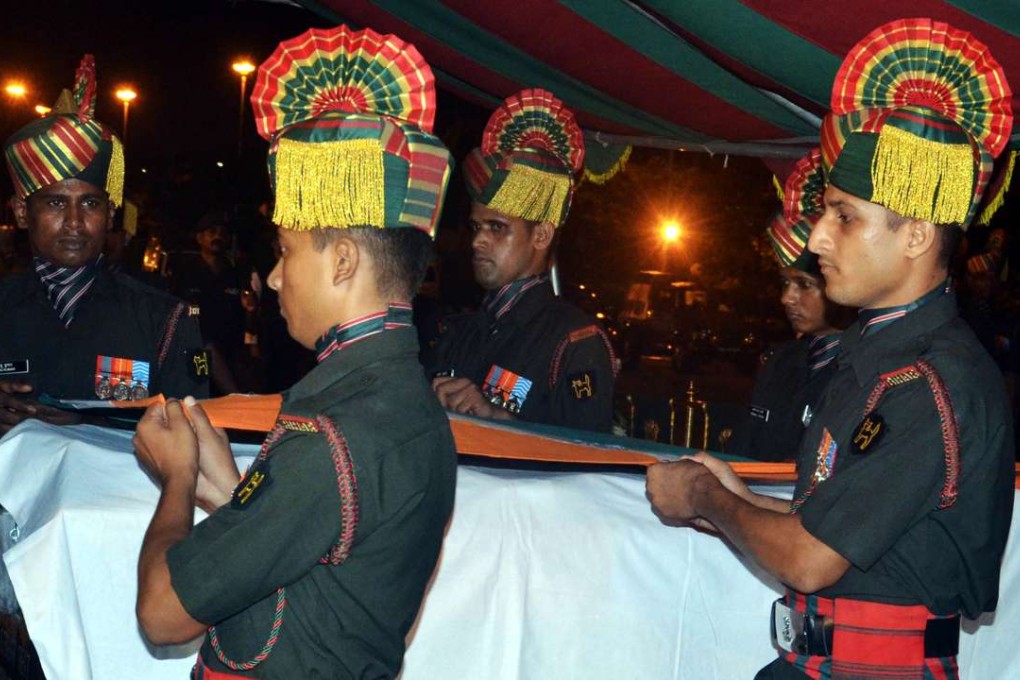
Last Christmas there was love in the air. Flying home from Afghanistan, Narendra Modi suddenly decided to stop over in Lahore to pay his Pakistani counterpart Nawaz Sharif a surprise visit, the first Indian prime minister to go to the estranged neighbour in nearly 12 years. The occasion for the unprecedented outreach: Sharif’s birthday and his granddaughter’s wedding. Sharif later hosted the wedding wearing a pink turban Modi brought as a gift.
Pakistan happy to aid in China’s quest for land route to the west; India, not so much
The turban has come off and so have the gloves, as the brief “bromance” – as media on the subcontinent had then put it – proved short-lived. India and Pakistan are back to their default setting of trading charges and fire, only this time dragging one of China’s key infrastructure projects in the region into the line of fire.

The current round of hostilities between the two South Asian neighbours erupted in grenade explosions last Sunday. Four terrorists, who India says belonged to a militant outfit sheltered by Pakistan, crossed the border and raided an army base in Uri in the Indian-administered province of Jammu and Kashmir, killing 18 Indian soldiers.
18 Indian soldiers, 4 commando militants killed in deadliest Kashmir attack in two years
As public demand for retribution mounts, the tough-talking Modi, who as an opposition leader would mock his predecessor for being soft on Pakistan and China, finds himself in a difficult situation as his options look woefully limited against a nuclear-armed neighbour. Short of an appropriate military option, the sniping has moved to the global diplomatic stage. While Pakistan last week was drawing the world’s attention to the ongoing protests in Indian-administered Kashmir that have claimed more than 80 lives, India has been trying to isolate Pakistan diplomatically at the ongoing United Nations General Assembly by painting it as a rogue state sponsoring terror.

But according to Shashi Tharoor, an opposition lawmaker and former minister of state for external affairs, “Isolation is a challenge since various countries have bilateral reasons not to isolate Pakistan. The US needs Pakistan because of Afghanistan, and China has major strategic interests there, especially the US$46 billion China Pakistan Economic Corridor (CPEC) that is China’s single biggest overseas development project. As long as major powers choose to stay engaged with Pakistan, overlooking its misbehaviour, diplomatic isolation will have its limitations as a policy.”

The CPEC links the Pakistani port of Gwadar on the Arabian Sea with Xinjiang ( 新疆 ), providing western China easy access to fuel imports from the Middle East and Africa while creating an export route for its landlocked western states.